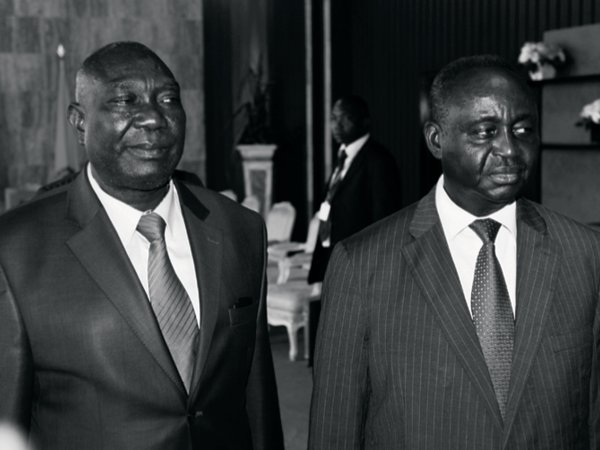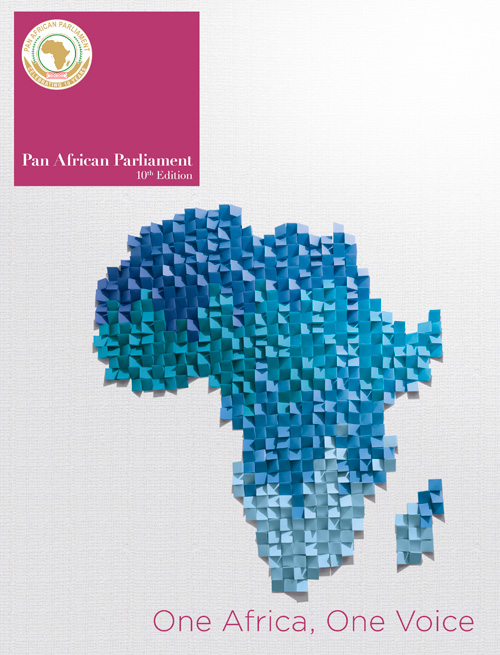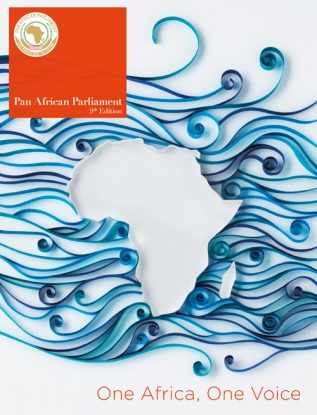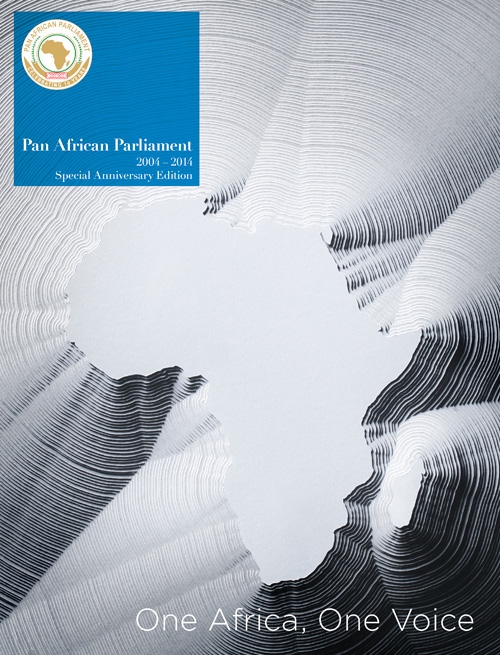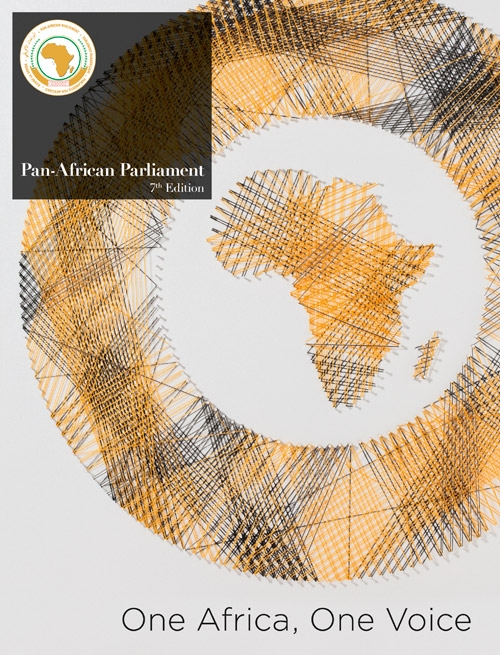
The latest developments in the political, security and humanitarian situation in the Central African Republic (CAR) caught the attention of the PAP which dispatched a fact-finding mission to the country from 2 to 4 October 2013, to gather the most information and propose solutions to resolve the crisis.
The mission was headed by the Hon Mohamed Guidji, Deputy Chairperson of the Permanent Committee on Justice and Human Rights of the PAP. Also part of the delegation was Hon Isaac Stephen Mabiletsa, Hon Salek Abderrahman and Hon Rose Marie Compaoré.
Setting the scene
The CAR is a landlocked country in Central Africa and is bordered by Cameroon, Chad, Sudan, South Sudan, the DRC and the Republic of Congo. It has diamond, uranium and gold deposits. Oil and hydroelectric energy are other potentially rich resources, but they remain unexploited.
The country has an estimated population of 5 million inhabitants, the majority of whom live in the centre and west of the country. In terms of religion, there are mostly Protestants (40%), followed by Catholics (28%), Animists (24%) and Muslims (8%).
The two official languages are French and Sango, though its population consists of more than 80 ethnic groups, each with its own language.
The CAR is a former French colony, having proclaimed independence in 1960. It was ruled mostly by military governments for three decades. In 1993, its first multi-party elections were held, and Ange-Félix Patassé was elected as President. Then, in 2003, President Patassé was removed from government in a coup d’etat, led by General François Bozizé. Bozizé established a transitional government and was elected President of the CAR in 2005.
He won a second term in 2011, though there was much dissatisfaction with the electoral process.
The mission
According to many people who spoke to the fact-finding mission delegates, the 2011 elections were marred by irregularities and the outcome was disputed by opposition parties. These parties regrouped under the platform of the Front for the Annulment and Resumption of Elections.
It is said that the regime of President Bozizé did not entertain any dialogue with opposition parties and the dynamic forces of the nation. There was a real impasse in the political class.
A coalition of several rebel groups joined together to form Séléka in December 2012 in a bid to oppose the Bozizé government.
Séléka criticised President Bozizé’s bad governance, single-handedness, family and clannish management of the country to the exclusion of the Vakaga Division and its indigenes. The inability of the state to ensure security throughout its territory enabled the rapid progression of Séléka forces. Peace talks held in Libreville, Gabon, led to the formation for a coalition government that included the Séléka leadership.
The Central African Republic is experiencing an unprecedented crisis that has resulted in the degradation of morals and serious violations of human rights
The Libreville Agreement provided for a power-sharing coalition, and for President Bozizé to remain President until the end of his mandate in 2016. The position of Prime Minister would go to a member of the democratic opposition, Nicolas Tiangaye. A transitional government was put in place for 12 months.
However, the Séléka coalition felt that President Bozizé did not honour the Libreville Agreement. On 23 March 2013, the coalition government dissolved as rebels seized the capital Bangui.
The leader of the rebel forces, Michel Am-Nondroko Djotodia, proclaimed himself President of the Republic. Tiangaye was again appointed Prime Minister.
Serious human rights violations were reported following the coup, and this led to the deterioration in peace, security and the economic situation in the country.
Findings
The objective of the fact-finding mission was to gather maximum information from members of the transitional government, political forces, civil society organisations, international organisations and religious groups to enlighten the PAP, in accordance with its constitutive role, and pursuant to the Protocol establishing it.
The PAP fact-finding mission met with various political, social, religious, and business leaders who felt that the CAR is experiencing an unprecedented crisis, which has resulted in the degradation of morals and serious violations of human rights.
According to many national and international observers, the three key figures of the transition – Michel Djotodia (Transition Head of State), Nicolas Tiangaye (Prime Minister) and Alexandre-Ferdinand Nguendet (President of the National Transitional Council) – do not work in close collaboration to effectively see out the transition period.
According to the delegation’s interlocutors, the Head of State who is from the Séléka coalition and the Prime Minister, who comes from the former democratic opposition, do not have the same political culture and each has his own agenda. Certain sources indicated to the delegation that the governmental team is not fully controlled by the Prime Minister. They felt that the democratic opposition is not involved in managing the transition.
The relationship between the three key figures of the transition created hurdles in the management and development of the transition. According to personalities encountered, elections could not be organised if the three actors of the transition did not co-operate.
The malaise in the political arena was overshadowed by the lack of security, which the fact-finding mission found was the biggest factor facing the nation of the CAR.
The serious breach of security was due to arms proliferation of all sorts, the constant presence of rebels and foreign mercenaries in Bangui, as well as in all provinces of the country.
According to the stakeholders that the mission met, the Séléka rebellion was the key source of the security problem. Despite the seizure of power by the head of the Séléka coalition, elements of Séléka continued to commit human rights violations and abuses against the civilian population.
Serious human rights violations have led to the deterioration in peace, security and the economic situation
Cases of looting, kidnapping, murder, robbery, theft, rape, killings, destruction of private infrastructures and public buildings and other criminal acts were being registered every day throughout the country.
According to the United Nations High Commissioner for Refugees based in Bangui, 394 979 people were displaced inside the country and the total number of refugees in neighbouring countries is thought to be around 60 000.
In its report to the PAP, the mission stated that the international community must take urgent measures to lift the country out of this situation.
Transitional authorities lacked the financial resources to restore peace and security in the country. The slowing down of socio-economic activities was likely to cause a food crisis.
It was also discovered that sanctions, which were imposed by the AU against the CAR, have exacerbated the economic crisis.
The differences that exist between the three key figures of the transition can be explained by the lack of trust and collaboration, which was hindering the development of the transition.
Recommendations
Given the prevailing political, security and humanitarian situation in the CAR, the PAP mission has recommended the following:
- The deployment of an African-led International Support Mission to the CAR to be accelerated throughout the country.
- The transitional government should take measures to re-settle those displaced by the unrest and ensure the provision of humanitarian assistance and other social services such as health, education, water and food, which were destroyed during the uprising.
- The AU should lift the economic sanctions imposed on the CAR, to allow the transitional government to pay basic public utility services such as public service salaries, utilities and other resources for organisation and preparation of credible elections as well as provision of basic public infrastructure. The lifting of AU sanctions would also guarantee a climate conducive to the return of technical and financial partners to the CAR with the resumption of their financial support.
- The transitional government should give urgent priority to the disarmament of the heavily armed Central African militias and foreign mercenaries to create the necessary environment conducive to free electoral campaigns, without any threat to national security.
- The international community needs to put pressure on the three key figures mandated to manage the transition so that they work in close co-operation in the interests of all the people of the CAR.
- The African Committee on Human and People’s Rights needs to respond urgently to serious violations of human rights in the country.
- There is an urgent need to organise an inclusive dialogue between all strata of society for the establishment of a peaceful climate before the organisation of elections.
- There is also an urgent need for the AU to organise a continental meeting with all stakeholders related to the conflict in the CAR.



